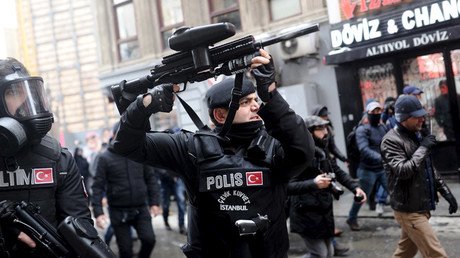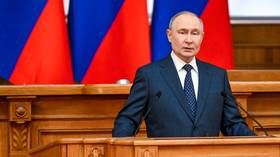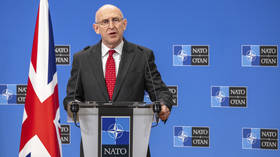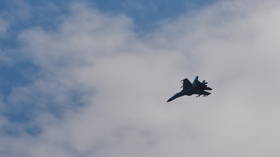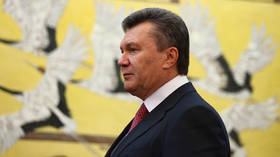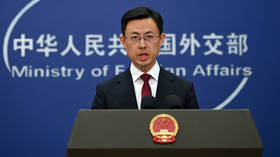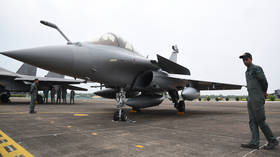Turkey confesses fears to US of Syrian Kurds making territorial gains
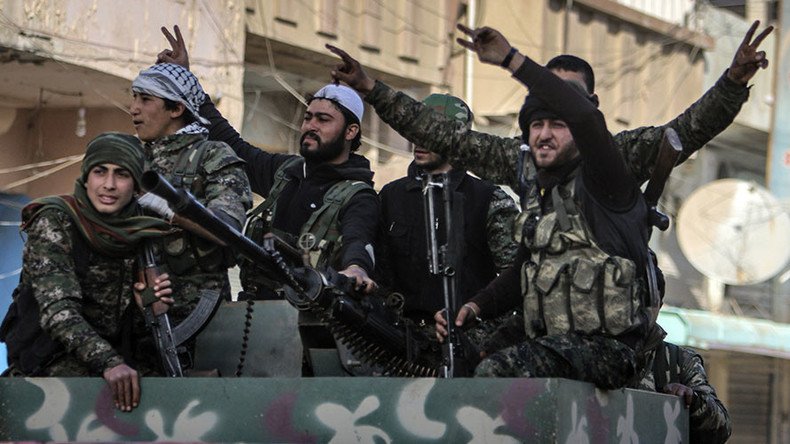
Turkey has expressed its fears to the US concerning Kurdish expansion in northern Syria. Ankara is worried about Kurdish territorial gains, but Washington wants to ensure Turkey’s southern border is sealed to stop Islamic State fighters getting into Syria.
Kurdish fighters have proved to be some of the most effective forces in helping to combat Islamic State (IS, formerly ISIS/ISIL) in northern Syria, while borders in territories under its control have been sealed to stop the flow of foreign IS militants into Syria.
However Ankara is not happy as it believes the Syrian Kurds are looking to create a corridor along the northern border with Turkey, which would cut off Turkey from sharing a boundary with Syria. The Hurriyet Daily reports that Ankara has brought the matter up with General Joseph Dunford, chairman of the Joint Chiefs of Staff, who is Washington’s top military figure.
Turkey believes the Kurds, who form the Democratic Union Party (PYD), are aligned with the Kurdistan Workers’ Party (PKK), which is banned by Ankara. However, Russia, the US and a number of other coalition members see the PYD as a legitimate political party.
“We are aware of their desires and attempts to establish a Kurdish corridor along the Turkish border by entering the Azaz-Jarablus line. We have declared so many times that Turkey will never accept this,” a security source said, as cited by the Hurriyet Daily.
READ MORE: Erdogan cites Hitler’s Germany as example of effective presidential system
Turkey has carried out attacks on Kurdish forces in northern Syria. In late July, the Kurds said they had been bombed at least four times, with civilians being among the casualties. Ankara maintained its airstrikes were aimed at members of the PKK.
Speaking to Italian media in December, Russian Foreign Minister Sergey Lavrov questioned Ankara’s real goals regarding the Syrian conflict.
“We need to examine how a member of the US-led coalition – the Republic of Turkey – performs goals set by the coalition,” Lavrov said. “Why is it not bombing terrorists, but the Kurds instead?”
In late November, Washington urged Ankara to seal off a 100-kilometer stretch of borderline with Syria currently used by IS for the transportation of fighters and supplies into the Syrian war zone. However, Turkey says this is difficult because it would need around 30,000 military personnel to ensure the sealing of the border.
“The game has changed. Enough is enough! The border needs to be sealed,” the Wall Street Journal cited a senior Obama administration official as saying in a message from the US government to Turkey. “This is an international threat, and it’s all coming out of Syria and it’s coming through Turkish territory.”
By and large, Washington has been careful not to upset fellow NATO member Turkey as it has been allowed to use the Incirlik air base on Turkish soil in order to stage its air campaign against IS.
The number of coalition aircraft operating from Incirlik has grown from 15 in early September to 59 aircraft and UAVs - 45 of which belong to the US Air Force, with the remainder coming from Turkey, Qatar and Germany. Up to 1,300 American personnel are stationed at the base.
Turkish President Recep Tayyip Erdogan is also trying to quell what he sees as a Kurdish uprising in the southeast of Turkey. Last week, nearly 300 members of the PKK were killed in raids conducted by the Turkish military in three districts in areas with a large Kurdish population.
“That region in the southeast now is having trouble supporting itself, people are out of work and businesses are closing. Erdogan and his government have decided to make open warfare their policy against the Kurds in the southeast and destabilize one more country in the Middle East,” Ronald Grigor Suny Jr., professor of History at the University of Michigan, told RT.
Kurds have long been campaigning for the right to self-determination and greater autonomy in Turkey, where they are the largest ethnic minority. In late December, a congress of Kurdish non-governmental organizations called for Turkey’s southeastern regions to be granted autonomy via constitutional reforms.
